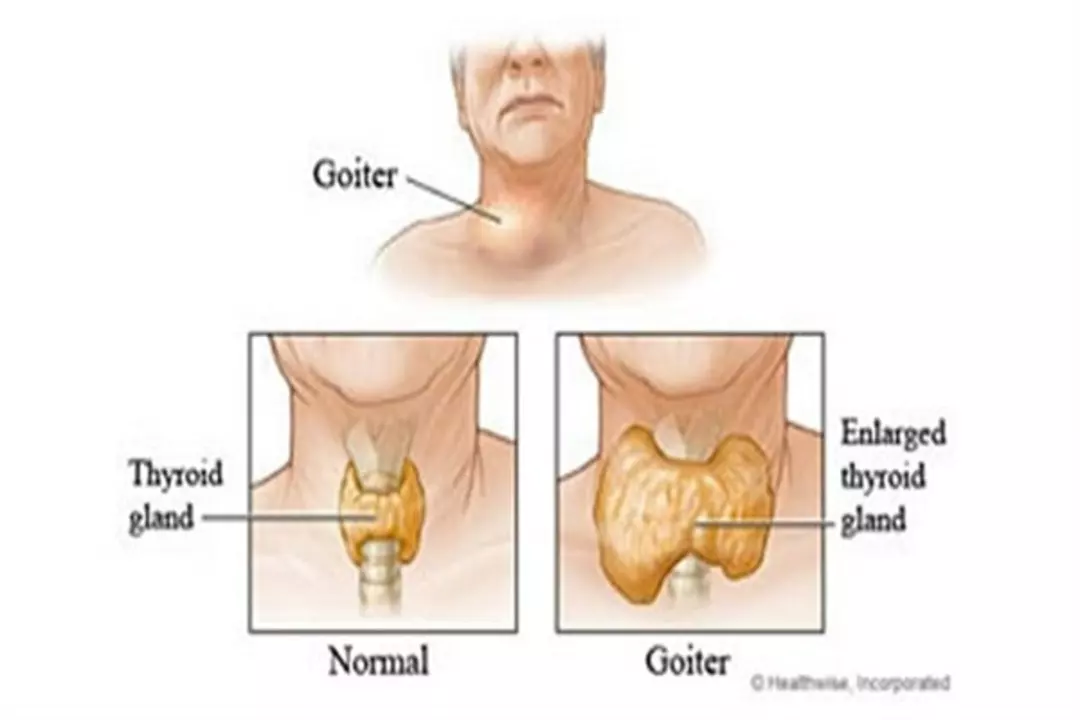Hypocalcemia and Thyroid Disorders: What You Need to Know
 May, 6 2023
May, 6 2023
Understanding Hypocalcemia and Its Connection to Thyroid Disorders
As someone who writes about various health topics, I often come across the term "hypocalcemia." This condition, which is characterized by low levels of calcium in the blood, can have various causes and consequences. One of the most interesting connections I've discovered is the link between hypocalcemia and thyroid disorders. In this article, I'll be discussing the relationship between these two conditions and what you need to know to maintain your overall health.
The Role of Calcium in the Body
Before diving into the connection between hypocalcemia and thyroid disorders, it's essential to understand the role of calcium in the body. Calcium is a vital mineral and is responsible for numerous functions, including muscle contraction, nerve function, and bone health. It's also essential for blood clotting and maintaining a regular heartbeat. Our bodies maintain a delicate balance of calcium, and when the levels are too low, it can lead to hypocalcemia.
Causes of Hypocalcemia
There are several factors that can lead to hypocalcemia. Some of the most common causes include vitamin D deficiency, kidney disease, and certain medications. However, one of the lesser-known causes of hypocalcemia is thyroid disorders. In the next section, I'll be discussing how thyroid disorders can lead to low calcium levels, and what this means for your health.
Thyroid Disorders and Hypocalcemia: The Connection
The thyroid is a small gland located in the front of the neck, and it plays a crucial role in regulating the body's metabolism. Thyroid disorders can cause an imbalance in the production of thyroid hormones, leading to various health issues. One such issue is hypocalcemia, as the thyroid hormones play a crucial role in calcium regulation in the body.
There are two main types of thyroid disorders: hypothyroidism (underactive thyroid) and hyperthyroidism (overactive thyroid). Both of these conditions can lead to hypocalcemia, but the mechanisms by which they do so are different. In hypothyroidism, the body produces too little parathyroid hormone (PTH), which is responsible for maintaining calcium levels. This leads to a decrease in calcium absorption in the intestines and an increase in calcium excretion by the kidneys, resulting in hypocalcemia. In hyperthyroidism, the excessive production of thyroid hormones can cause the bones to release calcium into the bloodstream, leading to a temporary increase in calcium levels. However, this can also lead to hypocalcemia over time, as the body struggles to maintain the correct balance of calcium.
Recognizing the Symptoms of Hypocalcemia
Understanding the symptoms of hypocalcemia is essential for those with thyroid disorders, as early detection and treatment can prevent more severe health issues. Some of the most common symptoms of hypocalcemia include muscle cramps, numbness and tingling in the hands and feet, and muscle weakness. More severe symptoms can include seizures, irregular heartbeat, and even heart failure.
If you have a thyroid disorder and are experiencing any of these symptoms, it's essential to speak with your healthcare provider. They can help determine if hypocalcemia is the cause of your symptoms and develop an appropriate treatment plan to help manage your condition.
Treating Hypocalcemia in Patients with Thyroid Disorders
The treatment of hypocalcemia in patients with thyroid disorders will depend on the underlying cause of the low calcium levels. In some cases, treating the thyroid disorder itself may be sufficient to resolve the hypocalcemia. This could involve adjusting medication dosages or even undergoing surgery to remove part or all of the thyroid gland.
In other cases, additional treatments may be necessary to manage the hypocalcemia. This could include taking calcium and vitamin D supplements, as well as making dietary changes to increase calcium intake. It's important to work closely with your healthcare provider to determine the best course of action for your specific situation.
Final Thoughts on Hypocalcemia and Thyroid Disorders
The connection between hypocalcemia and thyroid disorders is an important one to understand, especially for those living with a thyroid condition. By recognizing the symptoms of hypocalcemia and seeking prompt treatment, you can help maintain your overall health and prevent more severe consequences. Remember that working closely with your healthcare provider is essential for managing both your thyroid disorder and any related conditions, such as hypocalcemia.


Patrick Klepek
May 8, 2023 AT 10:14Michael Ferguson
May 9, 2023 AT 08:53Renee Williamson
May 9, 2023 AT 17:37Jim Aondongu
May 10, 2023 AT 07:13Kyle Tampier
May 11, 2023 AT 08:53Tom Caruana
May 11, 2023 AT 11:53Sebastian Brice
May 12, 2023 AT 18:21Muzzafar Magray
May 14, 2023 AT 15:13Michael Schaller
May 16, 2023 AT 06:44